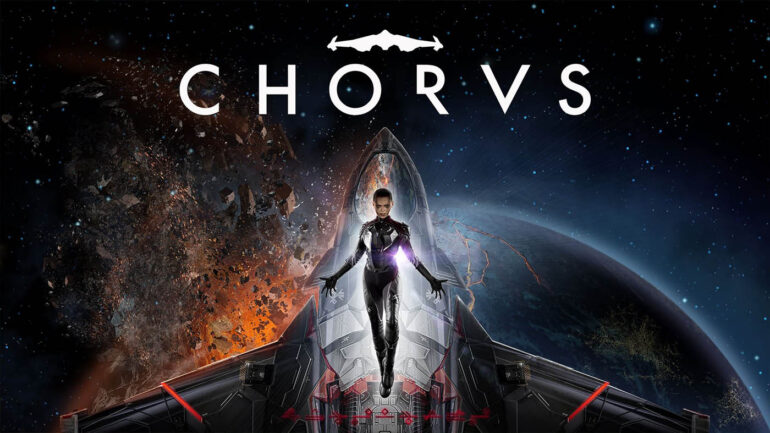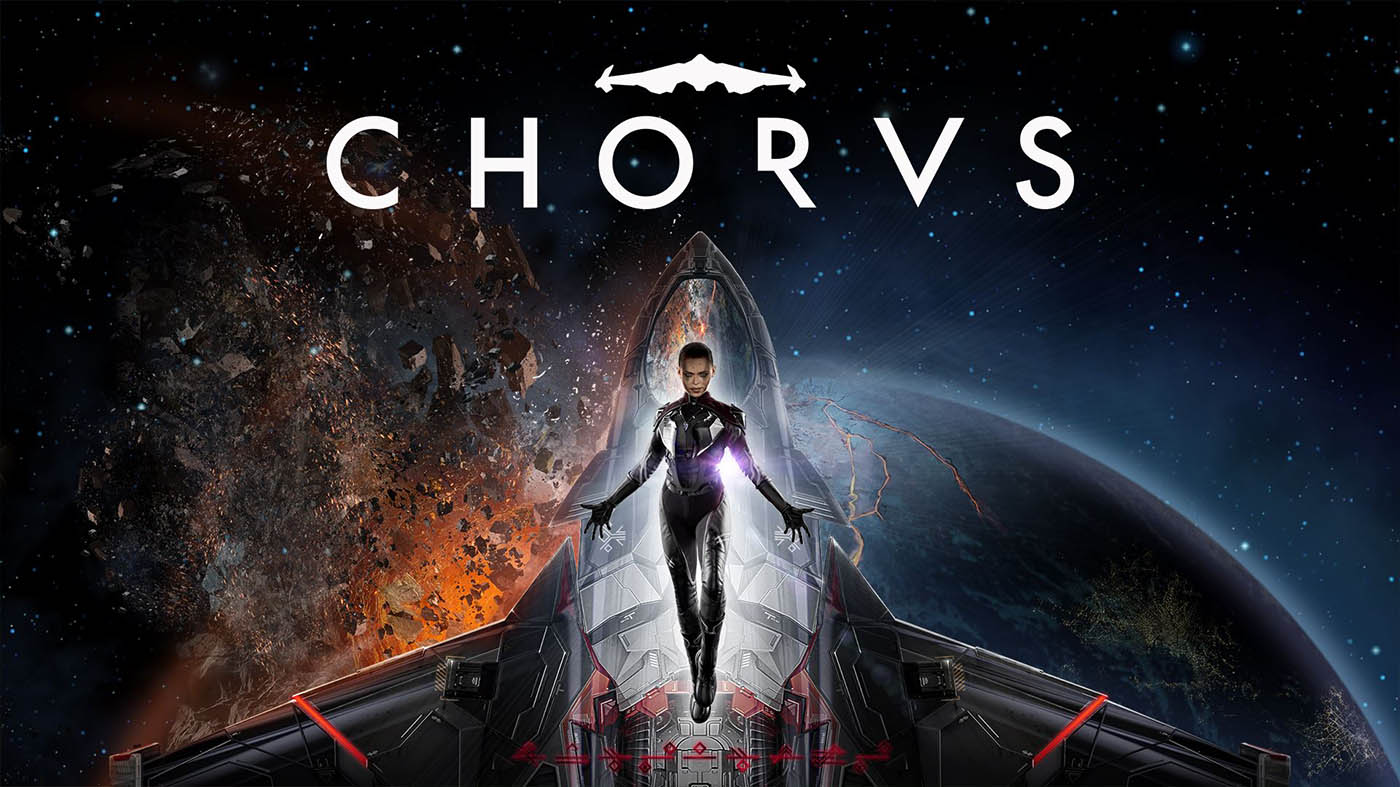The sci-fi fantasy of zero gravity dogfights between over-engineered fighter ships in nothingness of space has always been an alluring one, and its a thrill that video games have sought to capture since their very inception. Chorus takes the modern idea of spaceship combat and attempts to fuse it with a tale of cults, cosmic horror and personal redemption to somewhat successful results.
In a galaxy under the threat of the Circle – an intergalactic cult that wears its intentions on its gold-hewn sleeves and its critical power cells on the outsides of all its best ships – a former Circle warrior turned defector named Nara takes up her old vessel to face her past deeds and prevent the cult’s ‘cleansing’. Chorus takes players on a journey through a number of distinct sectors where Nara will need to earn the trust of the residents and resistance, building a network of allies to assist her in taking down a foe that’s backed by the mysterious powers of a faceless and ancient force.
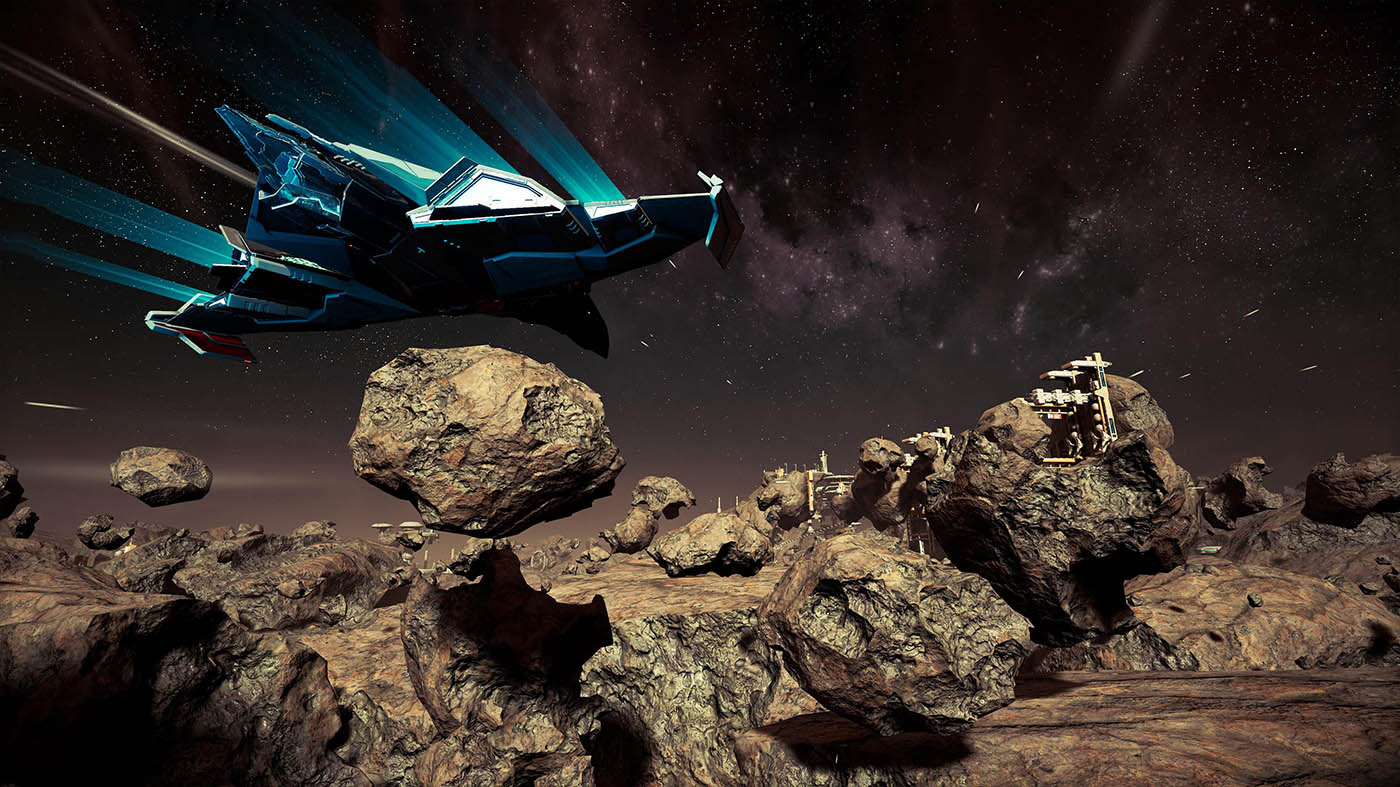
For a game full of side characters and citizens in need, cutthroat pirates and sinister cults, Chorus feels alarmingly lonely. Part of that comes from the way that most of its key players are never seen save for the ships they get around in, which might have worked if their rides were more memorable. It’s also in part an issue of perspective, where your own experience – also confined to a pulled-back view of your ship – makes the spaces around you feel like model representations of places more than a living, breathing world. Enemies especially amount to little more than the UI markers attached to them that tell you where and how alive they are.
It’s not that an indie-scale spaceship shooter needs to have a terribly deep or detailed world or ridiculous production values, but it’s clear that Chorus is trying to tell a story with nuance and depth and in these attempts it constantly comes up against itself. The writing simply doesn’t shine well enough to make the format work, exacerbated by stilted dialogue and characters whose motivations swing wildly from one direction to another with little context. Nara and Forsaken’s joint personal journeys feel hamfisted and betrayed by angsty exchanges and frequent tonal shifts.
It’s disappointing because the dual-protagonist concept does work quite well when it works and gives the game a nice point-of-difference to the many other titles it cribs from. There are lessons taken from games like Returnal and Hellblade: Senua’s Sacrifice informing Nara’s design and arc here, but it misunderstands the important qualities of those stories and draws only from their most surface-level ideas.
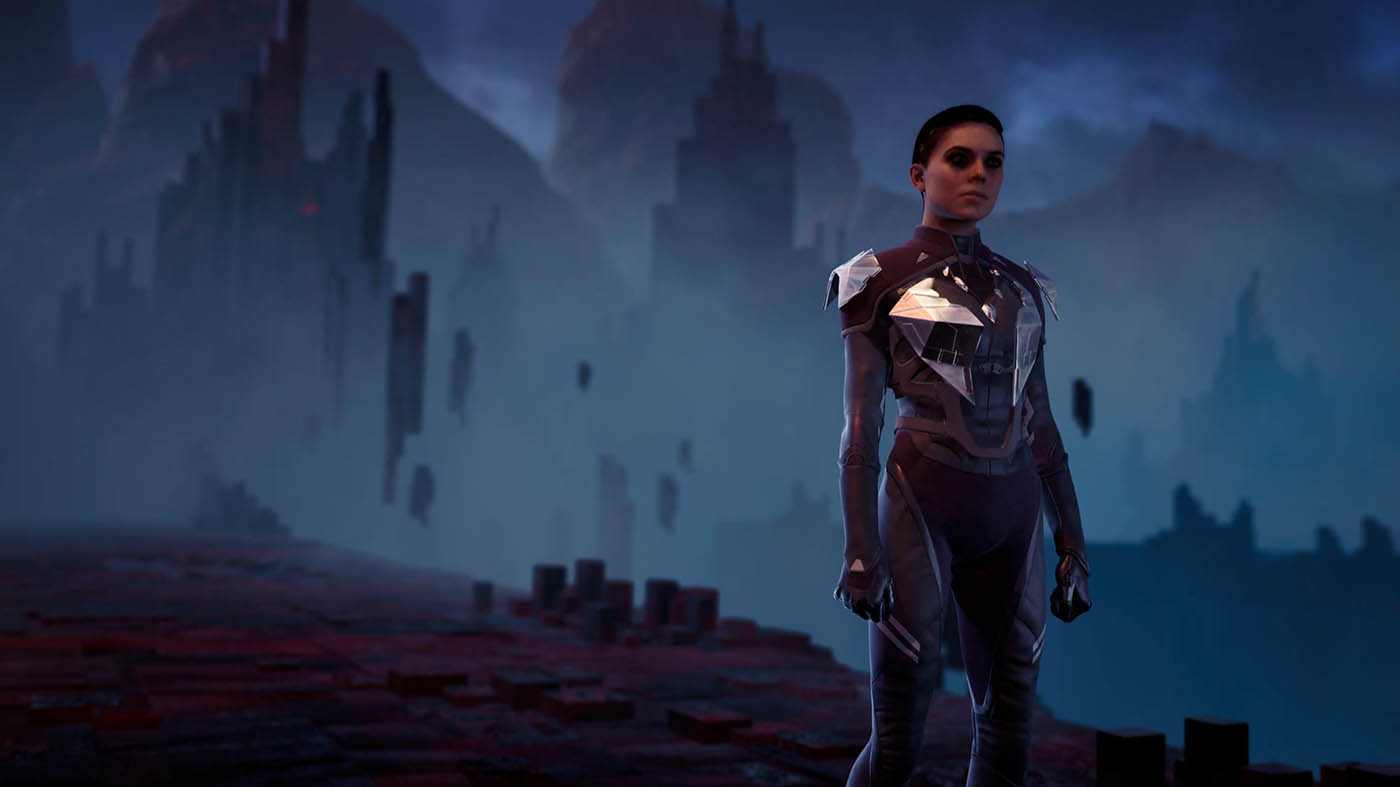
That said, the symbiosis of Forsaken’s engineering and Nara’s spiritual awakenings does make for a nice twist on other spaceship combat experiences. Controlling Forsaken can get awkward in the heat of the moment, but once you get the hang of it you’ll be boosting and drifting through tight spaces like a champ. Throw in some light puzzles that use Nara’s abilities to detect points of interest and teleport short distances and you end up with a handful of genuinely cool sequences.
Combat itself makes good use of both Forsaken’s trifecta of weapon types and Nara’s Rites, offering up enemy ships that have set attack patterns and weaknesses that need to be countered with the right tools. Certain ships will shield themselves from the front for example, meaning players will need to use the Rite of the Hunt to quickly teleport behind them and unleash a barrage of missiles to break through their tough armour. The strategic play is solid, but basic skirmishes are let down by messy controls, a lack of lock-on and the constant need to dip out of the action to recharge your shields thanks to often unavoidable barrages of fire from unseen foes.
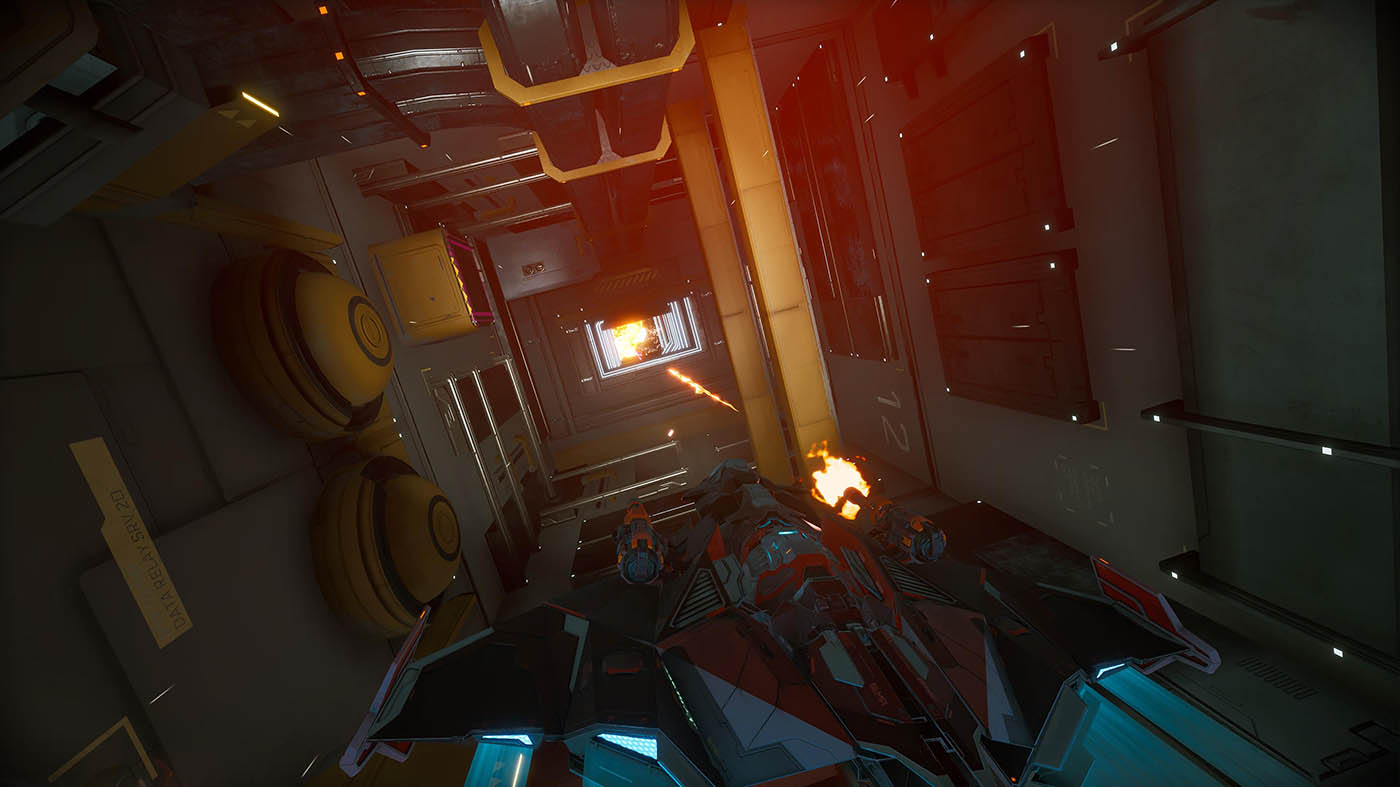
Chorus excels in its tighter, more focussed moments. Moments where the pair are tearing through the insides of huge ships, or navigating otherworldly structures touched by cosmic horrors and the sins of her past. Some of the touchstone battles across its 10-12 hour campaign can be exhilarating in spite of the awkward controls, tasking players to fly through enormous warships and blow them up from the inside out or square off against multi-stage ‘bosses’ that make effective use of Nara’s unique Rites.
These moments are too few and far between though, sandwiched amidst dull fetch quests and inane conversations with featureless NPCs in open space. When Chorus isn’t forcing you to fly dozens of kilometres to each arbitrary new mission point and listen to its one-dimensional characters prattle on about things you won’t care about, it’s drawing on open-world game tropes that died off a generation ago like escort and tailing sequences.
There are some very basic RPG elements such as weapon and armour enhancements and mods, and proficiencies that grow through use, but they muddy the allure of Chorus’ skill-based action. The game even seems to recognise this as it force-feeds you upgrades at set intervals to keep pace with its difficulty curve. There just aren’t enough opportunities for players to form their own strategies and masteries given the game’s arcade-y combat and enemies with clearly-defined weaknesses. Compared to a game like Everspace 2 with its hefty loot and levelling systems, what’s here feels too much like an afterthought.
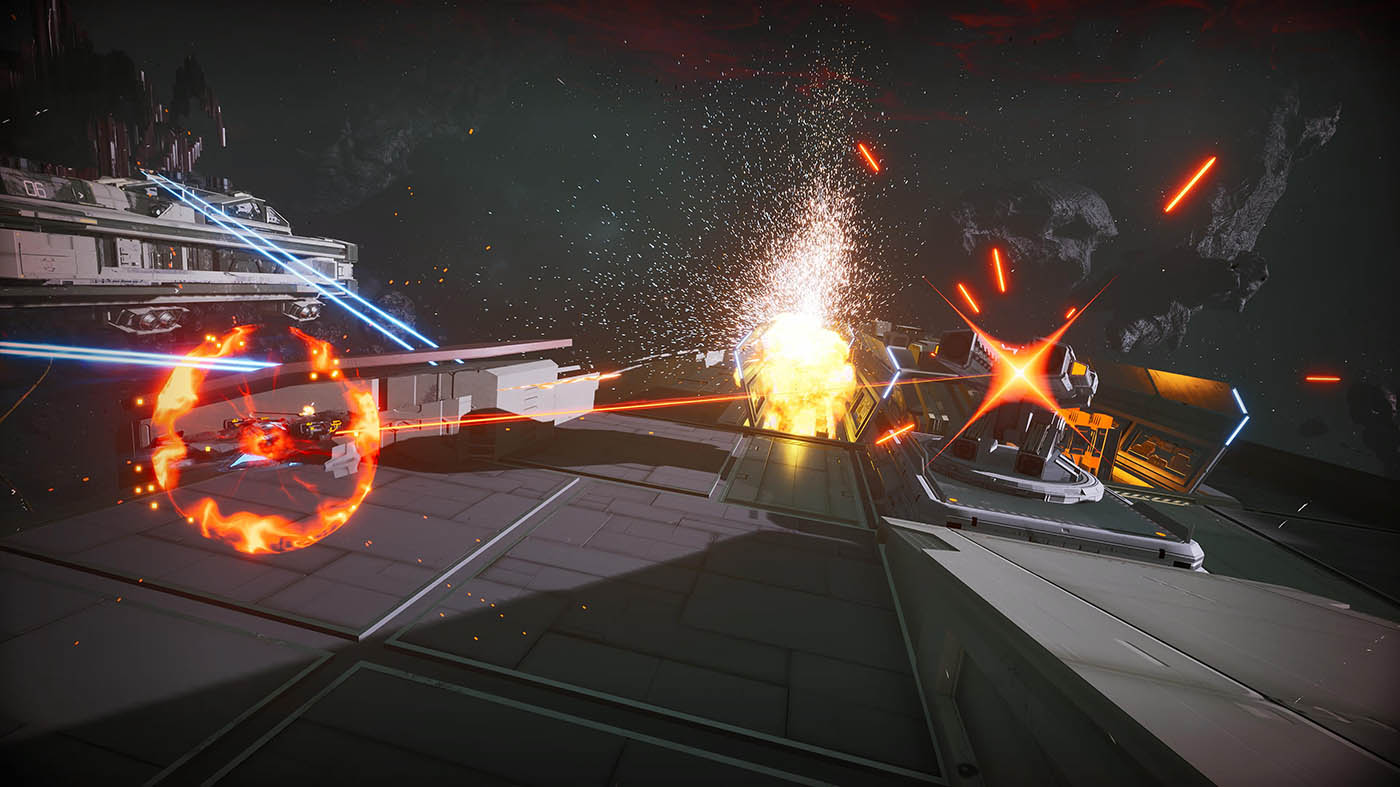
Chorus does offer up a handsome slice of space to explore though, the handful of expansive sectors available to navigate through packed with impressive vistas and intriguing points of interest. Ancient structures birthed by old and terrible beings are among the most interesting places to behold. As mentioned it is betrayed somewhat by perspective, as the many ships and human habitats you visit tend to lack personality or detail purely because of their scale. The overall presentation is decent though, and the few cutscenes where we get to see Nara are quite nicely rendered and acted. There’s even a rudimentary photo mode to snap those gorgeous views of space or heated combat moments.


